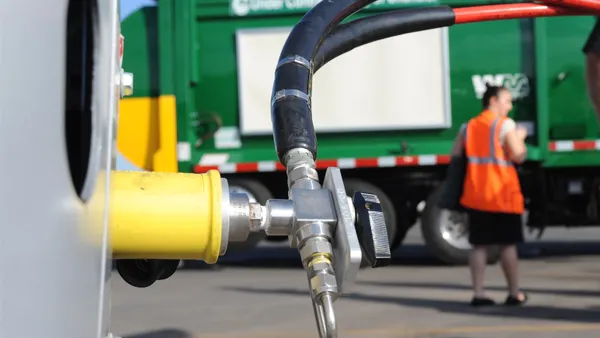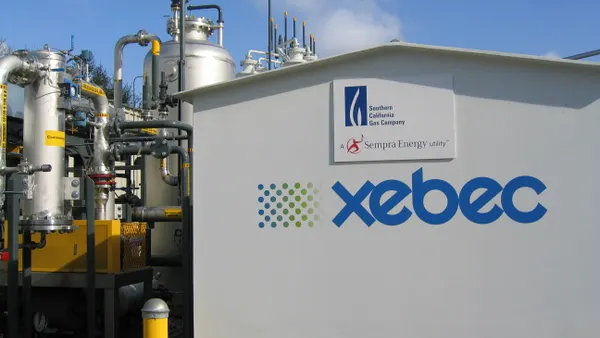Dive Brief:
- Wheelabrator Baltimore, Curtis Bay Energy, the Energy Recovery Council, the National Waste & Recycling Association (NWRA) and TMS Hauling filed a federal lawsuit against Baltimore on Tuesday seeking to overturn the city's recently passed Baltimore Clean Air Act.
- The plaintiffs allege that the new law represents "an illegal effort by the City" to shut down two local incinerators by "imposing extraordinarily low emission limits and other mandates that the City has no authority to require."
- "[T]he Act — supported by no legislative fact-finding and the thinnest of records — targets Wheelabrator Baltimore and Curtis Bay with the intent of driving them from business in an arbitrary and capricious manner and in a remarkable display of legislative hubris," the complaint declares.
Dive Insight:
Approved unanimously by city council members in February, the Baltimore Clean Air Act has been hailed by residents and environmental groups as a critical victory against hazardous emissions — but opponents, it appears, are refusing to go down without a fight. Wheelabrator Baltimore previously stated these new standards would effectively force its closure, the NWRA was already on record against the law and other affected parties have also weighed in.
According to the complaint, the ordinance directly conflicts with federal and state air regulations currently being satisfied by the Wheelabrator Baltimore facility and Curtis Bay Baltimore Regional Medical Waste Incinerator. The local law, it contends, establishes "extraordinary and unprecedented constraints that do not advance public health, are not science- or fact-based, and in fact are in furtherance of an agenda to close the Facilities regardless of the consequences to residents and businesses in Baltimore City and beyond."
The Baltimore Clean Air Act, the plaintiffs go on to assert, conflicts with numerous laws and regulations enacted by EPA and the Maryland Department of Energy (MDE) — a move prohibited by federal and Maryland law, as well as by the Charter of Baltimore City.
"We, together with the National Waste & Recycling Association, the Energy Recovery Council, Curtis Bay Energy LP, and a small Baltimore-based waste hauler, are challenging the City ordinance in federal court as unlawful," said Wheelabrator Baltimore in a statement. "Under federal and state law, the City does not have the authority to infringe on an area – air quality – already fully protected by federal and state laws, regulations, permits, and enforcement programs."
"The City’s ordinance, which will cost local taxpayers tens of millions of dollars, sets arbitrary standards," it added. "In contrast, the existing stringent limits in federal and state regulations are based upon evidence-based scientific studies that aggressively protect public health and the environment by requiring installation and operation of the best available pollution control technologies. Even more unreasonable are the requirements in the City law to install emissions monitoring technology that does not exist. We are confident we will prevail in court."
Mike Ewall, founder and director of Energy Justice Network — a driving force behind the Baltimore legislation — dismissed the plaintiffs' claims.
"I'm glad they did this, because we're looking forward to using this lawsuit to set a precedent," he told Waste Dive. "Baltimore's Law Department has already found their argument to be 'demonstratively false' — state and federal laws make it very clear that Baltimore has the authority to adopt stricter emissions standards."
According to the federal Clean Air Act (CAA) and Maryland's State Implementation Plan, states and other political subdivisions are not restricted from adopting ordinances, rules or regulations that set emission standards or ambient air quality standards — so long as newly imposed standards are no less stringent than those established by CAA or MDE. The Law Department's January 2019 letter also found the City Council's right to enact tighter emissions standards to be supported by the Baltimore City Charter, which allows Baltimore to pass "any ordinance as it may deem proper in maintaining the peace, good government, health and welfare of Baltimore City."
The complaint marks the second lawsuit filed by Wheelabrator over its Baltimore facility this month: the company is also seeking damages against Baltimore County for allegedly reneging on its contractual obligation to deliver a minimum of 215,000 annual tons of waste to the incinerator.










